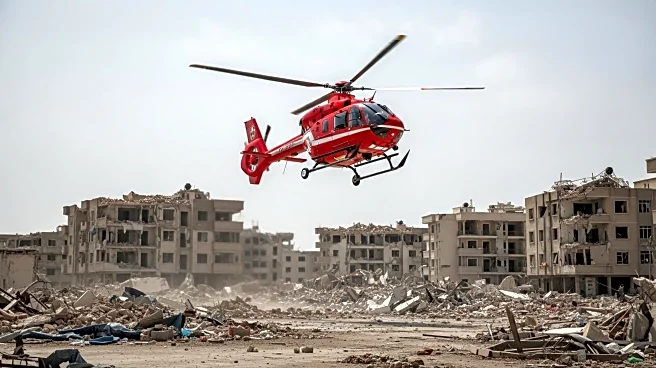What's Happening?
A powerful 6.9-magnitude earthquake struck the central Philippines, killing at least 69 people and causing widespread damage. The earthquake hit the province of Cebu, particularly affecting the city of Bogo and surrounding areas. Rescue teams are working to find survivors in collapsed structures, with the government considering international aid. The earthquake has disrupted power and communication, and the Philippine Institute of Volcanology and Seismology has issued warnings about potential aftershocks.
Why It's Important?
The earthquake has had a significant impact on the affected regions, highlighting the Philippines' vulnerability to natural disasters. The economic impact is substantial, with damage to infrastructure and businesses. The potential need for international aid could influence diplomatic relations and highlight the importance of global cooperation in disaster response. The event also underscores the need for improved disaster preparedness and infrastructure resilience in the Philippines.
What's Next?
Authorities are continuing rescue operations and assessing the damage to determine the need for international aid. The government has declared a state of calamity in the hardest-hit areas to expedite relief efforts. President Ferdinand Marcos Jr. is expected to visit the affected regions to oversee the response. The Philippine Institute of Volcanology and Seismology has warned of potential aftershocks, and residents are advised to remain cautious. The focus will be on providing immediate relief to survivors and rebuilding the damaged infrastructure.
Beyond the Headlines
The earthquake has exposed vulnerabilities in the Philippines' infrastructure and emergency response systems. The event may prompt a reevaluation of building codes and disaster preparedness strategies. Additionally, the psychological impact on survivors, who have faced both a tropical storm and an earthquake in quick succession, is significant. Long-term recovery efforts will need to address both physical and mental health needs. The disaster also underscores the importance of international cooperation in disaster response and recovery.










